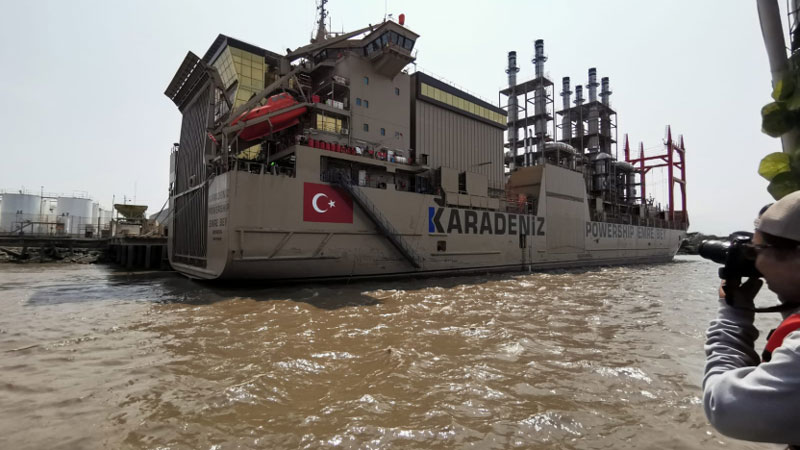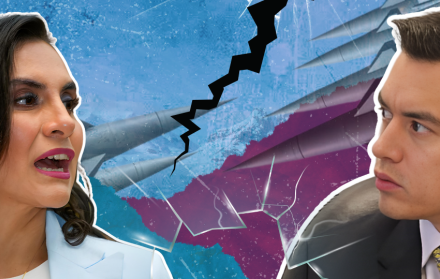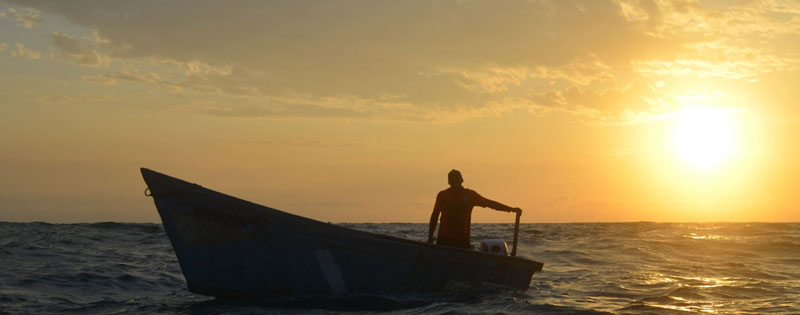Understand your tax obligations in Ecuador; Ignoring them can get you into trouble
By Stephen Vargha
The late U.S. Supreme Court justice Oliver Wendell Holmes said, “I hate paying taxes. But I love the civilization they give me.”

Owning an apartment, such as at Edificio Atlántida, is considered part of your assets that needs to be reported for the Asset Annex.
Taxes are nothing new for civilizations. The first known taxation took place in Ancient Egypt around 3000-2800 BCE. The Pharaoh collected a tax of 20 percent of all grain harvests. Because Egypt was without coined money, grain could easily be collected, traded, and redistributed throughout the kingdom.
Julius Caesar was the first to implement a sales tax. A rate of one percent was applied across the entire Roman Empire. Not many years later, Caesar Augustus raised it to four percent.
In the United States, the Constitution gives Congress the power to impose taxes and other levies on the general public. At the turn of the 19th century, states were responsible for collecting and passing them on to the federal government. Most of these were excise taxes (imposed on specific goods or services, such as alcohol and tobacco).
A tax on income was established in 1862 to fund the civil war efforts, but it was abolished after the surrender of the Army of Northern Virginia, in the village of Appomattox. The ratification of the Sixteenth Amendment in 1913 gave Congress the right to levy and collect income taxes.

Accountant Jessica Figueroa’s office is on the upstairs floor of her home.
In Ecuador, a series of new sales taxes were imposed in 1961 in order to raise desperately needed revenues for the country. That sparked a general strike and a series of demonstrations and riots in several major cities.
By 1987 of the total national government revenues, 65 percent was derived from taxes on income and capital gains. Domestic taxes on goods and services represented 13.7 percent.
Twenty years later, the requirement to submit the annex on assets and liabilities was introduced.
“You have to report everything you own in Ecuador and abroad,” said Jessica Figueroa. “You don’t have to pay taxes, but you need to file.”
The Cuencana accountant, who got her degree from the University of Azuay and now has her own business, added that based on specific eligibility criteria, there are no taxes on investments and bank accounts inside and outside of Ecuador for up to $200,000 for single people and $400,000 for married couples.
The Asset Annex is mandatory for all residents of Ecuador who meet the requirement and is typically due in May.

An accountant, such as Jessica Figueroa, can look up almost all of your purchases online for IVA tax refunds.
“I strongly recommend submitting this annex as there is an agreement in place for the sharing of tax and financial information between the United States and Ecuador,” said Figueroa. “By fulfilling this obligation, you ensure compliance with both countries’ regulations and maintain transparency in your tax affairs.”
The implementation of the Asset Annex in Ecuador was carried out aiming to strengthen control and transparency in tax matters. It was originally for people with over $100,000 in assets.
As expected, the amount keeps changing. According to Figueroa, the formula is now 20 times the annual unified basic salary (minimum wage) for single people and 40 times for married couples.
During the Covid pandemic, there was a one-time tax on assets over $1 million. One percent was charged for $1 million, and 1.5 percent was levied for assets over $1.2 million.
Everything one owns has to be reported. “This includes all your assets, such as cash, CDs, property, land, vehicles, and investments,” said Figueroa. “When you come to Ecuador, you have all of these benefits. But you also have obligations.”

Food items are not taxed, so there is no IVA refund to be had for people 65 years old and older.
Figueroa emphasized that it is important to report all assets from around the world. “I have a client who only reported her assets in Ecuador. That ended up getting her in trouble,” said Figueroa. “You have to justify the change from year to year. She now has a huge discrepancy.”
A big misunderstanding by many expats is double taxation. “There is no treaty between Ecuador and the United States concerning double taxation,” said Figueroa. “There is only an agreement to share tax and financial information between the two countries.”
That is why an American’s Ecuadorian financial institution will ask for a U.S. Taxpayer Identification Number or Social Security Number so that it can comply with the Foreign Account Tax Compliance Act (FATCA) requirements.
Not reporting assets has gotten expats into trouble with the Ecuadorian version of the Internal Revenue Service. “I have seen people notified by the SRI,” said Figueroa. “A penalty for not filing is $30 to $1,500.”

Prepared foods are taxed. Currently, the IVA (sales tax) is 12 percent.
The 34-year-old accountant added some expats are afraid to reveal their assets. “It is all online. That includes your property, all of your purchases made in Ecuador using the cédula number,” said Figueroa. “The sales tax shows where you have spent your money.”
Impuesto al Valor Agregado (IVA) is another area of confusion for expats. The Ecuadorian value-added tax is 12 percent. Like many places in the U.S., there is no tax on food, but there is one on prepared foods such as rotisserie chickens.
Many expats take advantage of their Tercera Edad status (being 65+ years old). The 2008 constitution of Ecuador recognizes and guarantees rights of the elderly, and one of them is a refund on the IVA.
“If you have not claimed a refund, you can go back five years,” said Figueroa. “You provide your cédula number, and your accountant can go online and access all of the electronic invoices.”
About 90 percent of all purchases were filed electronically with SRI. The rest were paper. Electronic invoices became mandatory in November.

Everything one owns has to be reported. This includes all your assets, such as CDs and savings accounts at Ecuadorian financial institutions.
Figueroa wants everyone to know that not everything one purchases is eligible for a refund. “Pet expenses are not included. Alcohol, televisions, and computers are considered a luxury, so they are not eligible for a refund,” said Figueroa. “And a refund on a car purchase can be requested, but it will only be a partial amount as there is a maximum amount for a refund.”
The IVA refund is for essential goods and services such as clothing, culture, education, health, housing, mobility, sports, and transportation that are for personal use and consumption. It does not apply to the purchase of goods and services intended for commercial use.
“Small car repairs such as oil changes are eligible as well as intraprovincial buses and even tourist buses,” said Figueroa. “The SRI says hotels can be added as a housing expense.”
Just like one’s assets, the IVA refund is tied into the unified basic salary. In 2022, the maximum refund per month was $102. This year, it has gone up to $108.
The SRI electronically deposits the refund into one’s Ecuadorian bank account in two weeks. “It used to take 60 days,” said Figueroa.
Maybe one of the most commonly asked questions from prospective foreign residents is income tax. Their biggest concern is paying taxes to the government in their home country and then turning around and paying more to the Ecuadorian government.

Ninety percent of purchases are sent electronically to the SRI. Accountants such as Jessica Figueroa can retrieve the information for you.
For 2023, one is taxed on their net income earned in Ecuador (not from abroad) that is over $11,722. Up to $14,935, that is taxed at 5 percent. The income between $14,936 and $18,666 is at 10 percent. At the next level that goes up to $22,418, one is taxed at 12 percent. And between $22,419 and $32,783, the tax rate is 15 percent.
The deductions on one’s income is very similar to those in the United States. And expats have the same rights as Ecuadorians. “The constitution says all foreigners have the same protections and obligations as Ecuadorians,” said Figueroa.
In the case of U.S. citizens, income earned in Ecuador would be subject to U.S. income taxes as well since the United States taxes earnings of its citizens no matter where they reside. In other words, you are subject to the same rules regarding income taxation as people living stateside.
U.S. citizens from high property tax states such as New Jersey (2.49 percent) and Illinois (2.27 percent) are pleasantly surprised when they see what their annual bill is in Cuenca.
“It is very low, but there are still people that complain,” said Figueroa. “That includes one American woman who did not like what she paid. But I know she paid a lot more than that in the United States.”
If one pays in January, there is a reduction in the property taxes. Of course, many are taking advantage of that so the line at the municipal building on Mariscal Sucre can be rather long.
And Tercera Edad comes into play with your property taxes. To get the senior discount, one has to go in person and show their cédula to get the reduction and to have it for future years.
Figueroa wants everyone to know her advice is based on the tax laws right now. They can change anytime.
And it is best to have a local professional to deal with one’s finances and the government.
__________________
Jessica Figueroa, Accountant, Accro Corp., jesslyfigueroa@gmail.com, 099-619-1775, https://accrocorp.com/
Photos by Stephen Vargha
Stephen Vargha’s book about Cuenca, “Una Nueva Vida – A New Life” is available at Amazon in digital and paperback formats. His blog, “Becoming Cuenca,” supplements his book with the latest information and photos by him.

















